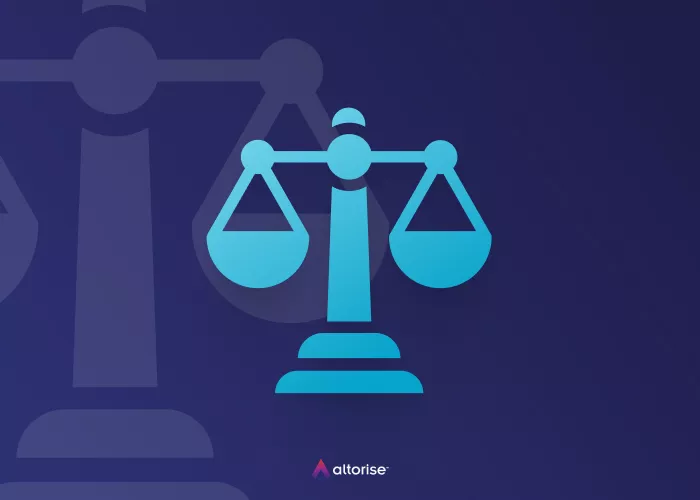It's just three decades ago; the world was introduced to the idea of the World Wide Web, where the first version of the internet was primarily static pages. But as technology improved and the World Wide Web moved into its second version, it became more interactive and led to the birth of social media, which led to an explosion of user-created content.
But this second version of the web came with its own challenges- from data ownership to cybercrime, leading to a rapidly worsening erosion of trust. The biggest culprit here was marketing and advertising, which came in a shade of grey, often playing with the consumer's trust and, at times, crossing the limits of marketing ethics. And as time passed and these Web 2 tech companies grew up in size, for many, these misleading claims in the promotional activities became part of their business decision and marketing strategy. This was one of the few reasons the call and demand for Web3 became stronger and louder.
The Crossroad between Blockchain and Marketing Ethics: Key Learnings

As Web3 is in its nascency, its often compared to the initial years of blockchain technology and Bitcoin as both are new-age technology speaking of decentralization and empowering the user. Like any new technology, Bitcoin and blockchain, in their early days, had gotten traction from early adopters, including developers, hobbyists, and a few people who understand the technology and are trying something new. This is the group where adoption is inevitable, and the early movers have already started gaining from them.
But as the competition grew and more and more people started exploring the idea of adopting blockchain and laying their hands on cryptocurrencies, a lot of newer projects, in order to gain newer users, many projects chose to have false advertising and gaps in their marketing and advertising communications as part of their marketing strategy to achieve business success. A league of scammers also falsely advertised the whole project, making untrue claims, duping the investor, and playing with consumer trust making it difficult for the user to differentiate between a fundamentally strong project and a scam.
Instances of Misleading and Unethical Marketing Practices

There have been several examples where regulators have held projects as their ad campaigns that involved inconsistent and misleading messaging and making false claims, thus fooling the customer. In 2022 UK watchdog puts 50 crypto companies on notice over ‘misleading’ ads where according to the Advertising Standards Authority in the UK, found ads of the said projects had ethical issues. The regulator also went on to say that he would sanction these projects and firms for unethical practices if these "problem ads" were not taken down and would also report to other regulators in the country if there were any further ethical issues in marketing.
The same thoughts were reiterated by the American regulatory counterpart, the U.S. Federal Federal Trade Commission, which said they would investigate several crypto firms for unfair business practices, unfair marketing strategies, and deceptive advertising, which was misleading consumers.
These unethical marketing strategies and regulatory warnings were not just restricted to smaller or unknown projects but also engulfed credible names whose brand loyalty and fan following, especially among younger audiences, was quite high. The British watchdog was again in the news when it ruled against Crypto.com, the official partner of the Australian Football League, for 'misleading' and negative advertising questioning the business ethics of the company marketers.
Why could unethical marketing be a death knell For Web 3?

In search of early success and achieving their goals quickly, many companies knowing or unknowingly, sought unethical marketing practices which involved misleading the consumers for temporarily increased sales. But in the long term, this unethical behavior hampers the relationship building with the project's users and stakeholders of the project thus derailing the whole marketing process. Unethical business practices, marketing, and advertising entail numerous forms of risk to the project, its stakeholders, and society as a whole. The primary risks involve
Damages to the Brand Image of the Project
Fines and Regulatory Actions
Societal Harm
Unethical marketing affects the brand image of the project as it involves misleading consumers, which over time moves away from the project, thus negating the higher sales that the business generates through improper and misleading marketing communications.
Regulators are vigilant these days, especially with new technology businesses where defined rules are still non-existent and leave a lot of scope for projects and their marketing teams to move away from ethical marketing practices. Regulators often levy heavy fines for breaches of consumer protection laws and unfair trade practices. Also, private individuals can bring lawsuits based on unethical marketing practices.
If done unethically, business decisions around marketing, such as product design, can harm the public's physical or mental well-being. Hence it is the social responsibility of the projects to keep a check on their business model and stick to ethical practices of marketing and business.
Principles of Ethical Marketing- The Strategic Do's and The Dont's
As it's been established that unethical marketing processes could lead to damaging consequences for Web 3 projects and companies, it becomes extremely important to lay down the principles and strategies for ethical marketing for Web 3 projects and apps. Below are a few does and dont's that the core project team needs to keep in mind while amending their existing marketing strategies or making new marketing strategies.
The Dos

Be as transparent as possible
Protect the Consumer, its Data, And its Privacy
Have Sustainability And Human Rights Commitments as pillars of Business Practice
Respond to Consumer Concerns with Genuine Care
Minimise Risks and Maximise Benefits
Web 3 and blockchain are all about transparency and decentralization. Hence effectively communicating becomes a key parameter for projects to keep a tab on. Whenever the project is marketing a product or service to customers, they must ensure they are fully transparent about it, including key information about its features and effective use.
In the era of Web 2, Consumers have often questioned the ethical behavior of centralized tech companies that controlled social media platforms. This has made them increasingly concerned about entrusting their personal data to companies. For this reason, Web 3 companies need to emphasize their commitment to consumer preference and privacy and create social awareness around it.
Ethical consumerism is gaining pace and awareness, becoming a bigger priority for many customers. Topics such as using sustainable materials and working with ethical brands are also gaining momentum. People want to feel assured about the project or brand they associate with. Consumers often appreciate a project that follows the moral principles of ethical marketing.
Consumer concerns should be the project's top priority, and ethical behavior toward the customer gains more traction than heavily advertised projects. A Web 3 project, just like social media and blockchain, is the blood of the project, and seeking to help the consumer comes above anything else and may help in opening doors for long-term relationships.
Every ethical marketing strategy should benefit as many people as possible while creating little harm or cost. Making an overall and lasting positive impact should always be the aim.
The Dont's

Don't Over Sell or Exaggerate
Don’t Exploit Comsumers Emotion
Comparisons Are Great But False ones are equally damaging
Verify the Claims made even if takes time
Do Not Follow the Stereotypes to Sell The Product
Ethical marketing includes communicating the truth to the customer without exaggeration and false representations. When a project exaggerates the benefits of its product, it may knowingly or unknowingly make a false claim. The project must remember that they should promise a customer anything that cannot be delivered.
Getting an emotional reaction from consumers is one of the most proven to generate interest. However, if the project's advertising team evokes negative emotions such as rage, fear, and sadness in a tasteless way, this could be seen as exploitative and may be considered manipulation.
This unscrupulous tactic involves manipulating and making inaccurate or misleading statements about a competitor's project or product their bringing out the negative aspect.
Not making unverified claims involves promising to deliver results without providing any evidence to back this up. This significantly hampers the image of the project and brings down its credibility.
This marketing strategy involves the promotion of stereotypes in order to sell a product. The harm here is that these marketing strategies often manipulate the customer without realizing it.
Differentiate your Web3 Brand with Ethical Marketing

While the world continues to struggle to draw a line between ethical and unethical behavior with respect to advertising and marketing, Ethical marketing practices can be a differentiator for an upcoming Web3 brand if the basics are done right. Here are a few points to keep marketing good practices in check
Avoid False Advertising:
Do Not Misuse Customer Data:
A Strcit no to Negative Advertising
Misleading Communication Regarding Pricing
False advertising happens when a company over-commits or embellishes the benefits of its products. Doing effective market research and knowing your target market helps narrow the message. A non-targeted message often leads to over-committing and false advertising, even if the project or the founders don't intend to.
In this data-driven world, it isn't easy to control customer data. Even if the project doesn't intend to use it, there could be other third-party vendors associated with the project that may end up using the data. And it isn't easy to justify to the customers that it wasn't the project. Hence it is necessary to draw stringent policies around misusing of customer data not just internally but also with third-party vendors that the company associates or engages with.
Competition is a part of business, but one should not advertise other companies' negatives to win their business. Playing with the competitor's image and highlighting their negative aspects may not be appreciated as a fair practice by the competitors and consumers, ultimately eroding the trust and confidence of businesses' customers.
Pricing is an important part of marketing, and being transparent about costs helps build trust with customers. Hence, sharing fixed and hidden costs and showing how the prices align with the products and services. While predatory promotions are common, the project must try to keep its communication with the customers to the mark to avoid confusion or the consumer feeling cheated.
To conclude, Ethical marketing and advertising uphold moral principles, and for a business to communicate clearly with its consumers is very critical. While sticking to ethics is key, the main motive for ethical advertising is to boost sales, gain awareness, and drive more customers to brands, thus creating brand loyalty.



It’s a pity you don’t have a donate button! I’d definitely donate
to this outstanding blog! I suppose for now I’ll settle for book-marking
and adding your RSS feed to my Google account. I look forward to brand new updates and will talk about this blog with my Facebook group.
Chat soon!